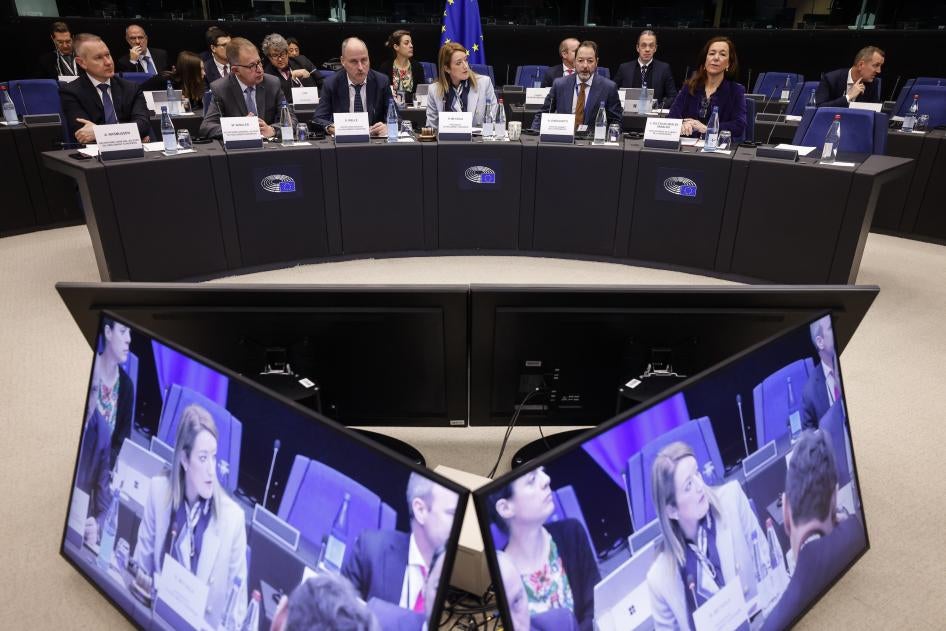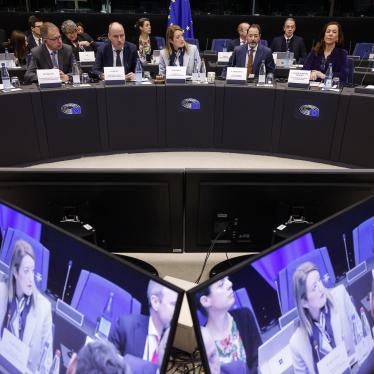Last week, the European Parliament political leaders decided to enforce a strict 500-word limit to their “urgency” resolutions on human rights abuses in third countries, as part of their response to corruption allegations known as “Qatargate.” The scandal refers to alleged bribery of Members of the European Parliament (MEPs) by foreign governments, including Morocco and Qatar, to shield themselves from Parliament criticism and secure positive votes.
But if Parliament aims to preserve its integrity in the wake of the scandal while safeguarding its role as an effective voice on human rights, it’s hard to discern how setting a word limit on its “urgency” resolutions would serve that purpose.
First, it’s important to note that Parliament’s decision applies only to its “urgency” resolutions. All other resolutions, including those on foreign policy and human rights, will continue to have no word limit. Emblematically, a November resolution on human rights in Qatar, deemed suspicious in light of the corruption allegations, was not an “urgency” resolution, and as such would not have fallen under the scope of the 500-word limitation.
Second, it is unclear how shrinking the length of urgency resolutions would serve to counter corruption. European Parliament resolutions, “urgency” or otherwise, stem from compromises among political groups and votes on amendments, and tend to eventually be thorough even when some initial group motions are not. Even the November resolution on Qatar ended up including important criticism and calls for action, that were welcomed by Human Rights Watch and rejected by Qatar’s authorities, proving that efforts within the 705-member assembly can and do lead to decent outcomes even when some MEPs may have fallen under undue influence.
Finally, if Parliament wants to seriously tackle corruption, it needs to look well beyond its human rights resolutions and activities. While foreign governments may seek to prevent criticism of their human rights record, the political and economic weight attached to other parliamentary actions, such as binding votes on legislation, trade deals, and cooperation agreements, is likely to trigger heightened lobbying activities towards MEPs.
Ultimately, imposing the pointless word-limit is the wrong cure for the wrong disease. The problem Parliament should be addressing is corruption, not its human rights work. Attempts to single out and hamper the latter, as we argued in a December joint letter, only serve the interest of perpetrators of abuses, to the detriment of their victims. MEPs should seriously reconsider and focus on other measures if they want to preserve the integrity of the institution.









